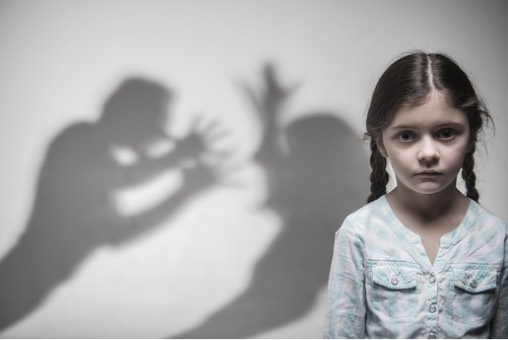The U.S. Department of Housing and Urban Development (HUD) recently announced added resources to advance housing protections for survivors of domestic violence, dating violence, sexual assault, and stalking under the Violence Against Women Act (VAWA).
VAWA is a federal law originally enacted in 1994 that today protects individuals who are survivors of domestic violence, dating violence, sexual assault, and stalking, regardless of sex, sexual orientation, or gender identity. It includes protections for survivors who are applying for or residing in covered housing programs.
The act was reauthorized in March 2022 by President Joe Biden. The new resources offered by HUD include a new VAWA website, a Notice setting out HUD’s enforcement authority under VAWA, and up to $5 million in funding to provide VAWA training and technical assistance to HUD grantees and other stakeholders.nThe $5 million is part of a Notice of Funding Opportunity for the Department’s Community Compass Technical Assistance and Capacity Building Program (NOFO). The available money will be awarded to Technical Assistance Providers (TA Providers) that will provide VAWA training sessions, technical assistance, and support to housing providers, grantees, and other stakeholders.nnOther alterations to VAWA include new provisions to address retaliation or the attempt to prevent residents from reporting issues with domestic violence and make it easier for HUD-housed victims to seek assistance from law enforcement without jeopardizing their housing.
“No one should have to choose between maintaining housing and staying safe. The Violence Against Women Act makes clear that survivors of domestic violence, dating violence, sexual assault, and stalking cannot be denied housing and are eligible for an emergency transfer should the need arise,” said Secretary Marcia L. Fudge in a February press release. “We are making these protections clear on HUD’s website, so landlords are aware of our requirements and survivors know their rights.”
Further, in the Notice, HUD establishes that the Department will implement and enforce VAWA in such a way that provides the same rights and remedies as those provided under the Fair Housing Act. HUD’s Office of Fair Housing and Equal Opportunity (FHEO) may now exercise discretion to investigate alleged or suspected non-compliance with VAWA, similar to how it may do so under the Fair Housing Act. VAWA also requires federal agencies, including HUD, to establish a process to review compliance with the applicable requirements in VAWA. HUD will implement this broader compliance review obligation.
“The new website, enforcement notice, and technical assistance funding are critical first steps in helping survivors understand their VAWA rights and housing providers understand their obligations under VAWA,” said Karlo Ng, HUD’s Director on Gender-based Violence Prevention and Equity. “All these components are vital in ensuring that survivors can find and live in safe, stable, and affordable housing.”
Covered Housing Programs
VAWA 2022 adds HUD’s Section 202 Direct Loan10 program to the list of covered housing programs, which means that VAWA now applies to the following housing programs administered by Multifamily Housing:n
- Project-Based Rental Assistance under Section 8 of the U.S. Housing Act of 1937, as amended
- Section 202 Supportive Housing for the Elderly program
- Section 202 Direct Loan program
- Section 811 Supportive Housing for Persons with Disabilities
- Multifamily rental housing under Section 221(d)(3) of the National Housing Act with a below-market interest rate (BMIR) pursuant to Section 221(d)(5)
- Multifamily rental housing under Section 236 of the National Housing Act
New Definitions in VAWA 2022
nVAWA 2022 amends the definition of “domestic violence” in section 40002(a) of VAWA to include any felony or misdemeanor crimes committed under the family or domestic violence laws of the jurisdiction receiving grant funding, as compared with the previous definition, which stated that “domestic violence” included felony or misdemeanor crimes of violence.nnIn the case of victim services, the use or attempted use of physical abuse or sexual abuse, or a pattern of any other coercive behavior committed, enabled, or solicited to gain or maintain power and control over a victim, including verbal, psychological, economic, or technological abuse that may or may not constitute criminal behavior, by any one of the following:
- A current or former spouse or intimate partner of the victim or a person similarly situated to a spouse of the victim
- A person who is cohabitating, or has cohabitated, with the victim as a spouse or intimate partner
- A person who shares a child in common with the victim
- A person who commits acts against a youth or adult victim who is protected from those acts under the family or domestic violence laws of the jurisdiction
These changes took effect on October 1, 2022. However, according to VAWA 2022, the definitions are only binding “for purposes of grants authorized under” VAWA, which do not include HUD programs. However, HUD believes its definition of “domestic violence” is broad enough to, in most circumstances, include the additional acts referred to in the VAWA 2022, which include technological abuse, economic abuse, and/or a pattern of any other coercive behavior committed, enabled, or solicited to gain or maintain power and control over a victim regardless of whether it can be considered a criminal act.
Nevertheless, HUD plans to consider implementing changes to its “domestic violence” definition to include the related definitions of “economic abuse” and “technological abuse” and making them applicable to HUD’s programs.nnLast year, US Housing Consultants hosted a free webinar to support victims of Domestic Violence with our own VP of Training and Compliance Policy, Amanda Lee Gross. The webinar can still be viewed on our website by clicking here.



